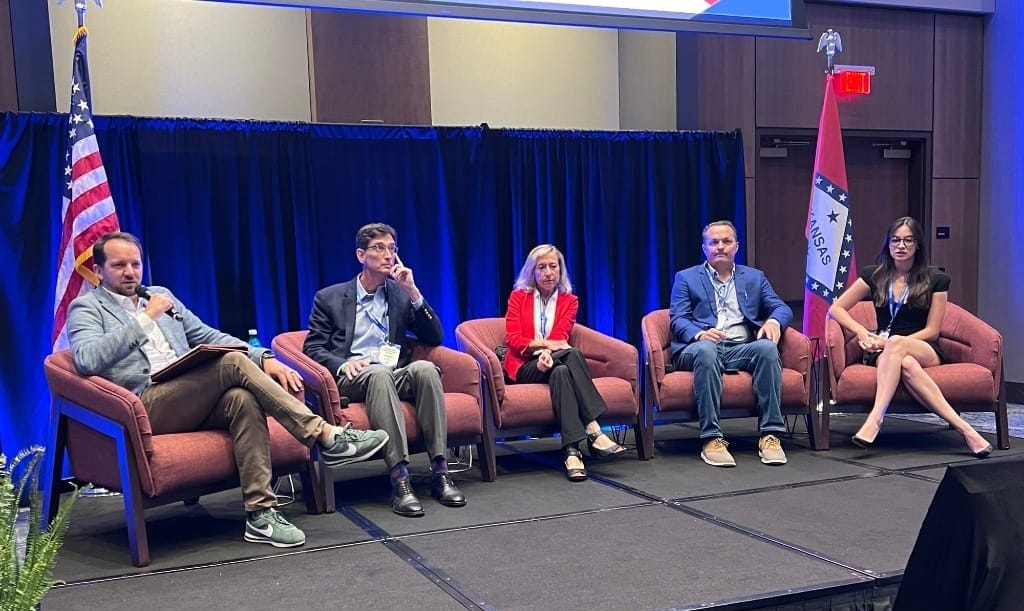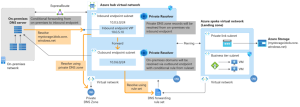
BEAD
NTIA official reveals ongoing efforts behind the scenes to expedite BEAD permitting processes.

 Photo of panel on “BEAD Requirements” at Arkansas broadband conference, with Jill Springer, senior policy advisor at NTIA, at center (in red). Photo by Drew Clark.
Photo of panel on “BEAD Requirements” at Arkansas broadband conference, with Jill Springer, senior policy advisor at NTIA, at center (in red). Photo by Drew Clark.
HOT SPRINGS, Ark., June 27, 2024 – The National Telecommunications and Information Administration is working to streamline the process for the environmental review of BEAD applications, an agency official said here Tuesday.
Jill Springer, a senior policy advisor at the NTIA, said that the agency was heeding industry concerns in addressing the issue of permitting, particularly on environmental reviews.
She spoke on a panel on program requirements at a conference on the Broadband Equity, Access and Deployment program hosted by the Arkansas state broadband office. BEAD, implemented by the Commerce Department’s NTIA, provides for $42.5 billion for broadband deployment, more than $1 billion of which is allocated for Arkansas.
“When more significant environmental assessments are required, we can expedite that process,” said Springer. “We are putting these tools in play to make this a less onerous process.”
A critical aspect of the NTIA’s strategy is to improve federal Geographic Information Systems data and tools so providers can anticipate requirements before starting the permitting process, she said.
For example, the agency is working to ensure publicly available maps like the Permitting and Environmental Information Application were as effective as possible.
“If you know all of this in advance, you can consider that in planning a project that has minimal potential for environmental impacts,” Springer said.
Springer also said that the NTIA has been working with other agencies to facilitate speedy cross-agency permitting.
“We have done some things to prepare other federal agencies to understand that they’re going to be receiving permits potentially in rural areas,” Springer said.
As an example, Springer said that the NTIA collaborated with the Advisory Council on Historic Preservation to expedite its reviews. The NTIA worked to lower the standard for identification and established presumptive, effective terminations of review for different kinds of broadband infrastructure.
Also, in April, NTIA announced that it had adopted 36 environmental exemptions for BEAD projects, including taking up 30 new “categorical exclusions” – activities that will not require the typical environmental assessments or impact statements under the National Environmental Policy Act – and adopting six more that were already in place for the FirstNet Authority.


